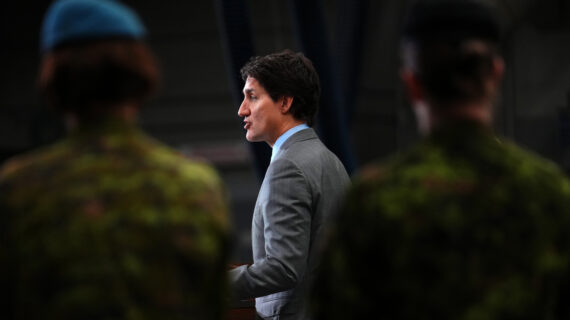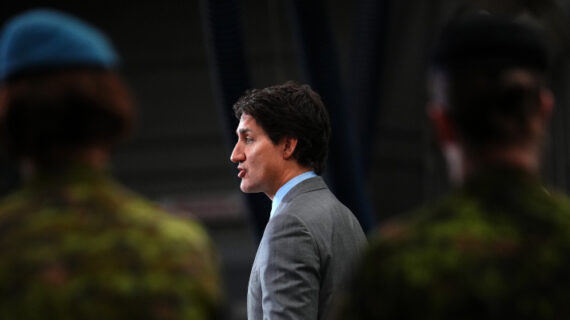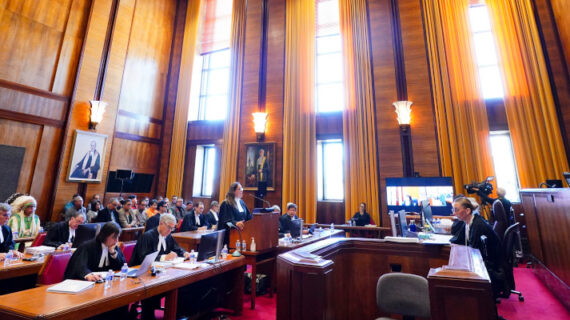We have written before that it’s fashionable to proclaim “law is politics”. In difficult cases, there is a non-coincidental overlap between one’s political orientation and one’s views on the law. As the psychologist Jonathan Haidt has noted, a dispositional preference for tradition and order may manifest itself in support for both right-of-centre political parties and a constrained judicial role with a disinclination to depart from judicial precedent.
But just as it would be naïve to conclude that there is no relationship between law and politics, there is a clear difference between the norms embedded in laws adopted by legislatures, and other political norms or aims, at large, that cannot be binding law. A good example of this is the relationship between international law and Canadian law. International law can guide the implementation of laws and provide fodder for the useful critique of existing laws, but those functions are distinct from the legal rules that bind us all.
This difference has been in the news prominently lately with the Federal Court of Appeal’s decision in Canada v Boloh 1(a). It is likely to come to the fore again through litigation in both Ontario and Quebec that proposes to limit the ambit of s 33 of the Charter, the “notwithstanding clause”. Both these cases show that there are times where international law might demand a political response even if Canadian law must quite rightly yield to the democratic branches of government.
The difference between law and certain norms, like some of those that could be seen as “international law,” is at the heart of our political order. Canada is a “dualist state”. This means Canada can become party to international treaties, but those treaties do not become enforceable domestically without implementing legislation. This preserves the separation of powers: the legislature is the lawmaker in Canada. But the practicalities of treaty-making mean that the executive must bind Canada as a matter of international law. So to preserve the legislature’s role in making Canadian law, domestic implementing legislation is required.
Boloh was an attempt by certain Canadians, who had allegedly joined ISIS and were now detained in “abysmal” conditions in Syrian prisons, to compel the federal government to seek their repatriation. Justice Stratas, for a unanimous Federal Court of Appeal, rejected any attempt to argue that international law can be binding in Canadian courts unless implemented in such a way to lead to that result. It can be relevant because certain Canadian laws (including constitutional provisions such as the right to enter one’s country, at issue in Boloh) are modelled off international legal sources. But they are relevant because Canada’s legislatures have made them so. And insofar as international law modelled s 6 of the Canadian Charter of Rights and Freedoms (the basis of the claimants’ case), that international law did not support their claim to have a positive right to repatriation. Other sources of international law supporting the claimants, such as the opinion of a UN Special Rapporteur, are not binding on Canada and cannot be used to “trump” Canadian law.
So is this the end of the matter for the claimants in Boloh? Of course not. They can petition the government to seek their repatriation, as the government has sought to repatriate other Canadians detained abroad. But the government must make a political decision about the prudence of doing so. In this case, the government expressed concern that having Canadian officials seek out the detainees would be dangerous. In another circumstance, the government could reasonably conclude that maintaining good relations with, say, Australia, would justify not seeking the repatriation of a Canadian detained there who is charged with a serious crime. International law norms should affect how Canada makes these decisions. However, political rather than legal considerations govern how Canadians enforce this, except insofar as laws have been made domestically enforceable by Canadian legislators.

This month, we have an article published in the Journal of Parliamentary and Political Law that explores the relationship between international law and Canadian law with respect to s 33. Gib van Ert, who to be sure is Canada’s leading expert on international law in Canadian courts, and Amir Attaran have posited that s 33 be “read down” to comply with Article 4 of the International Covenant of Civil and Political Rights, which permits “derogations” from the ICCPR, but only in emergencies. While this position may have much to commend it, we are not convinced that s 33 is inconsistent with Article 4. Section 33 only prevents courts from invalidating legislation. This is the status quo in the United Kingdom, New Zealand, and Australia. Are they accordingly always violating international law? Are they “rights-abusing dystopias”? Asking these questions answers them. In this context, international law may be relevant to assessing whether a use of the notwithstanding clause is morally, empirically, or institutionally problematic, but its legal status is subordinate to our domestic law, which includes—for better or worse—s 33.
Then there is the more incendiary option, proposed by van Ert, Attaran, and Andrew Coyne, that the federal government should “disallow” provincial legislation that uses s 33. This would be a “nuclear bomb” in terms of Canadian federalism, reviving a colonial power that has laid dormant for three-quarters of a century. But it would clearly be legal. So it is unsurprising that van Ert has argued in more depth for this option. And it would ultimately be up to the federal government to decide whether the costs of using disallowance are “worth” the benefits—including the moral benefits of protecting minority rights. In other words, this too would remain a political decision. Again international obligations would be relevant in this regard.
International law may contain important guidance for the implementation of laws and useful resources for those who wish to critique existing laws. Just ten days ago, the Supreme Court emphasized that a challenge to the constitutionality of the Safe Third Country Agreement was based on Canadian law and that international law was only helpful for providing “indicia” of fairness. These are valid political functions of international norms. But unless Canadian legislatures adopt international norms as laws that govern Canadian citizens, those norms are, at best, guidance for the political branches of government. This puts the focus where it should be: the legislative branches, over which we exercise control with our vote, guided by our own personal consciences.




